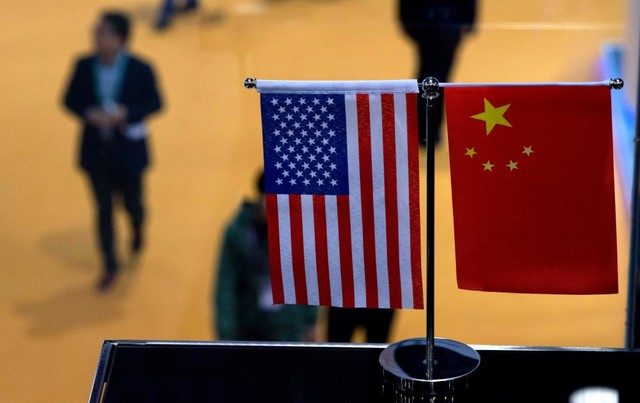SUMMARY
This is AI generated summarization, which may have errors. For context, always refer to the full article.

BANGKOK, Thailand – The economies of both the Philippines and Thailand are being affected by the trade rift between Washington and Beijing, officials from both countries said.
Philippine Trade Secretary Ramon Lopez told reporters here on Friday, June 21, that the US-China trade war has an impact on the economies of Association of Southeast Asian Nations (ASEAN ) member-countries, such as the Philippines and Thailand.
He said most ASEAN countries “suffered decline in their exports.”
“There is a slowdown caused by the US-China trade tensions. We hope the issue [will] be tempered down,” he said.
While Lopez did not provide figures on the impact of the trade war between the two giant economies on the Philippines, Thailand’s Ministry of Commerce said its exports to China fell by 8.1% year-on-year, leading to a deficit of $1.45 billion in April alone.
Lopez said the remedy for this was for ASEAN members to find other trading partners not involved in the trade dispute.
“ASEAN should be prepared and have better trading performance with other countries not involved in the US-China trade issue,” he said.
In the case of the Philippines, he said it continued to strengthen its partnership agreements with such countries like Japan. The Philippines also hoped to forge a free trade agreement with South Korea soon.
Pinning hopes on RCEP
For its part, Thailand said it was pinning its hopes on the completion of the Regional Comprehensive Economic Partnership (RCEP), considered to be the biggest trade deal among Asean countries plus 6 other nations.
“For this reason, completing the RCEP negotiations is Thailand’s top economic priority as ASEAN chair. It is our toughest challenge and if successful, it will be our biggest achievement,” Auramon Supthaweethum, the director general of Thailand’s Department of Trade Negotiations under the Ministry of Commerce, had told a Thai newspaper.
She illustrated how huge the potential, citing the combined gross domestic product of RCEP members amounting to about 28% of the global GDP and at least 30% of the value of global trade.
Auramon said the RCEP negotiations might be completed in November and each country will have to ratify it. She said she was hoping that the RCEP will be officially in force by 2020.
Lopez said RCEP has being delayed by a lot of factors. “Not every country is on the same level. We have reached a point to really demand from the different negotiation parties to be more realistic, pragmatic,” said Lopez who was here for the 34th ASEAN Summit.
Negotiations for the RCEP, which includes India, China, Japan, South Korea, Australia and New Zealand, have been going on for the past 7 years already but Lopez said it had been progressing.
“It’s really a long and comprehensive (free trade agreement) involving 16 countries. When it comes to details of the negotiation like products and services rules of origin, government procurement competition, there are many discussions taking place, there are different sets of targets, level of liberalization,” he said.
“In the end it’s recognizing the level of development, preparedness. Not every country is on the same level,” the Philippine official added.
For the Philippines, he said one of the hindrances was the constitutional provision on economy, which “we cannot change overnight.”
Lopez said while RCEP is a major issue among Asean countries, it was not on the agenda of this year’s ASEAN Summit. – Rappler.com
Add a comment
How does this make you feel?
There are no comments yet. Add your comment to start the conversation.